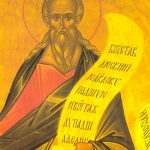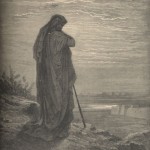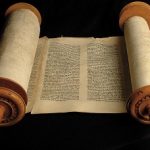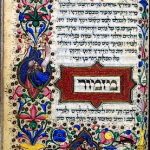An Unstable Nation – Amos 7:7-17
 The verses that come before this set the scene. The opening verses of this chapter remind us that Amos was a man of prayer. He was an intercessor. He was not a politician. He was not even what we might call a “social critic.” Nor did he come with some sort of political solution to the problems of Israel. He spoke the word God had given him. His saw the inequities and sins of the northern kingdom (called Israel or Ephraim). But, when he saw the prospect of destruction, he prayed for the people: “Sovereign Lord, I beg you, stop! How can Jacob survive? He is so small!”
The verses that come before this set the scene. The opening verses of this chapter remind us that Amos was a man of prayer. He was an intercessor. He was not a politician. He was not even what we might call a “social critic.” Nor did he come with some sort of political solution to the problems of Israel. He spoke the word God had given him. His saw the inequities and sins of the northern kingdom (called Israel or Ephraim). But, when he saw the prospect of destruction, he prayed for the people: “Sovereign Lord, I beg you, stop! How can Jacob survive? He is so small!”
A prophet is a person of prayer. A prophet is a person who desires mercy. A prophet is a person who speaks the truth.
Twice Amos has seen a vision of destruction for the northern kingdom of Israel. Twice he has called out to God for mercy. This sets the scene for the image that is introduced now:
Amos 7:7-9:
כֹּה הִרְאַנִי וְהִנֵּה אֲדֹנָי נִצָּב עַל־חוֹמַת אֲנָךְ וּבְיָדוֹ אֲנָךְ
“This is what he showed me: the Lord was standing beside a wall built
with a plumb line, with a plumb line in his hand.”
וַיֹּאמֶר יְהוָה אֵלַי מָה־אַתָּה רֹאֶה עָמוֹס וָאֹמַר אֲנָךְ וַיֹּאמֶר אֲדֹנָי הִנְנִי שָׂם אֲנָךְ בְּקֶרֶב עַמִּי
יִשְׂרָאֵל לֹא־אוֹסִיף עוֹד עֲבוֹר לוֹ
“And the LORD said to me, “Amos, what do you see?” And I said, ‘A plumb
line.’ Then the Lord said, ‘See, I am setting a plumb line in the midst
of my people Israel; I will never again pass them by;’”
וְנָשַׁמּוּ בָּמוֹת יִשְׂחָק וּמִקְדְּשֵׁי יִשְׂרָאֵל יֶחֱרָבוּ וְקַמְתִּי עַל־בֵּית יָרָבְעָם בֶּחָרֶב
“‘the high places of Isaac shall be made desolate, and the sanctuaries
of Israel shall be laid waste, and I will rise against the house of
Jeroboam with the sword.’”
 The translation I have provided above is from the New Revised Standard Version, and reflects the traditional translation of this passage. Most of the translations you might consult are similar to this. The traditional translation of the Hebrew אֲנָ֑ךְ is “plum line.” If this translation is correct, the idea is this: the nation is out of plumb: it is crooked. Now, destruction cannot be averted. The immanent destruction of Israel is not arbitrary. The wall is crooked. It will fall. The nation is corrupt from within.
The translation I have provided above is from the New Revised Standard Version, and reflects the traditional translation of this passage. Most of the translations you might consult are similar to this. The traditional translation of the Hebrew אֲנָ֑ךְ is “plum line.” If this translation is correct, the idea is this: the nation is out of plumb: it is crooked. Now, destruction cannot be averted. The immanent destruction of Israel is not arbitrary. The wall is crooked. It will fall. The nation is corrupt from within.
Most of the commentaries (especially the older ones) follow this translation and interpretation. But, it is more than a bit doubtful. The venerable old Keil & Delitzsch OT Commentary says: “The word אֲנָךְ, which only occurs here, denotes, according to the dialects and the Rabbins, tin or lead, here a plumb-line.” The contemporary consensus seems to be that the word means “tin.” But, the Septuagint is a bit different and has ἀδάμας which signifies “hardest metal.” I think “plumb-line” is still a possible translation — given that the word might mean “lead” or even “hardest metal” and also in deference to Delitzsch’s unnamed rabbis — but “tin” may have been the original meaning.

In the Word Biblical Commentary series, Douglas Stuart makes the following argument against the traditional translation:
Unfortunately, אנך has been widely mistranslated as “plumbline.” This definition was never more than a guess. Because Akkadian anāku can refer to either “tin” or “lead,” and since lead is often used as a plummet for squaring walls, אנך has seemed a synecdoche for “plumbline.” But the Hebrew for “plummet” is משקלת (2 Kgs 21:13; Isa 28:17) and for the “line” that holds it, קו (Isa 28:17). Thus אנך, used only here in the OT, clearly means simply “tin”….
Thus, he translates verses 7 and 8 as follows:
“This is what <Yahweh> showed me: He was standing on a tin wall and he had some tin in his hand. Yahweh said to me, “What do you see, Amos?” I said, “Tin.” <Yahweh> said, “I am going to put tin [moaning] within my people Israel. I will no longer pass him by.”
In either case, the point is that Israel is inherently unstable. It cannot stand.
Previously we are told the LORD relented from judgement (verses 3 & 6). Now destruction cannot be averted.
There is a standard by which nations are judged. The nation was crooked. Yet, it was a time of great prosperity. This was the reign of Jeroboam II. The rich had become richer. But, what does Amos see?
- Landowners have become enslaved through the creation of big estates: 2:6, 3:9-15, 5:11.
- More and more land is in the hands of fewer and fewer people. The people are heavily taxed to support the more opulent lifestyles of the powerful: 2:8, 5:11, 8:6.
- The needy are degraded: 4:1.
- The courts are corrupt: 5:7, 12.
- High prices are being charged for basic commodities: 8:4-5.
- Their costly religious sacrifices are empty, insincere, meaningless: 5:21-23.
The gap between the rich and the poor has widened. The powerful oppress and degrade the powerless. The government is corrupt. The courts are corrupt. Religion is corrupt. And, Amos stands up to speak to them of justice, righteousness and devotion to God.
It is a message which is forever contemporary. The dynamics that were at work in the ancient society of northern Israel are at work in every society. Those who have always want more. Power corrupts: both political power and religious power.
And, the prophet is the one who stands with God for the powerless, the voiceless, the oppressed. Always. The prophet speaks of justice and right even when it is considered rude to mention such things.
It was a time of apparent stability, and economic well-being for the nation. But, Amos says this is not so: there is a plumb line. The wall is crooked (or else: made out of tin). The nation will fall.
Amos 7:10-17:
וַיִּשְׁלַח אֲמַצְיָה כֹּהֵן בֵּית־אֵל אֶל־יָרָבְעָם מֶלֶךְ־יִשְׂרָאֵל לֵאמֹר קָשַׁר עָלֶיךָ עָמוֹס בְּקֶרֶב בֵּית
יִשְׂרָאֵל לֹא־תוּכַל הָאָרֶץ לְהָכִיל אֶת־כָּל־דְּבָרָיו
“Then Amaziah, the priest of Bethel, sent to King Jeroboam of Israel,
saying, ‘Amos has conspired against you in the very center of the house
of Israel; the land is not able to bear all his words.’”
כִּי־כֹה אָמַר עָמוֹס בַּחֶרֶב יָמוּת יָרָבְעָם וְיִשְׂרָאֵל גָּלֹה יִגְלֶה מֵעַל אַדְמָתוֹ
“‘For thus Amos has said, ‘Jeroboam shall die by the sword, and Israel
must go into exile away from his land.’’”
וַיֹּאמֶר אֲמַצְיָה אֶל־עָמוֹס חֹזֶה לֵךְ בְּרַח־לְךָ אֶל־אֶרֶץ יְהוּדָה וֶאֱכָל־שָׁם לֶחֶם וְשָׁם תִּנָּבֵא
“And Amaziah said to Amos, ‘O seer, go, flee away to the land of Judah,
earn your bread there, and prophesy there;’”
וּבֵית־אֵל לֹא־תוֹסִיף עוֹד לְהִנָּבֵא כִּי מִקְדַּשׁ־מֶלֶךְ הוּא וּבֵית מַמְלָכָה הוּא
“’but never again prophesy at Bethel, for it is the king’s sanctuary,
and it is a temple of the kingdom.’”
וַיַּעַן עָמוֹס וַיֹּאמֶר אֶל־אֲמַצְיָה לֹא־נָבִיא אָנֹכִי וְלֹא בֶן־נָבִיא אָנֹכִי כִּי־בוֹקֵר אָנֹכִי
וּבוֹלֵס שִׁקְמִים
“Then Amos answered Amaziah, ‘I am no prophet, nor a prophet’s son; but
I am a herdsman, and a dresser of sycamore trees,'”
וַיִּקָּחֵנִי יְהוָה מֵאַחֲרֵי הַצֹּאן וַיֹּאמֶר אֵלַי יְהוָה לֵךְ הִנָּבֵא אֶל־עַמִּי יִשְׂרָאֵל
“‘and the LORD took me from following the flock, and the LORD said to
me, ‘Go, prophesy to my people Israel.’'”
וְעַתָּה שְׁמַע דְּבַר־יְהוָה אַתָּה אֹמֵר לֹא תִנָּבֵא עַל־יִשְׂרָאֵל וְלֹא תַטִּיף עַל־בֵּית יִשְׂחָק
“’Now therefore hear the word of the LORD. You say, ‘Do not prophesy
against Israel, and do not preach against the house of Isaac.’”
לָכֵן כֹּה־אָמַר יְהוָה אִשְׁתְּךָ בָּעִיר תִּזְנֶה וּבָנֶיךָ וּבְנֹתֶיךָ בַּחֶרֶב יִפֹּלוּ וְאַדְמָתְךָ בַּחֶבֶל תְּחֻלָּק
וְאַתָּה עַל־אֲדָמָה טְמֵאָה תָּמוּת וְיִשְׂרָאֵל גָּלֹה יִגְלֶה מֵעַל אַדְמָתוֹ
“Therefore thus says the LORD: ‘Your wife shall become a prostitute in
the city, and your sons and your daughters shall fall by the sword, and
your land shall be parceled out by line; you yourself shall die in an
unclean land, and Israel shall surely go into exile away from its land.’”
This is the only narrative part of the book of Amos — so our knowledge of Amos and his career as a prophet rests upon this.
 This is an interesting face-off. Here we have the representative of official state-sanctioned religion confronting a rough, working class prophet. It is the religious professional against the charismatic prophet. Amaziah has the ear of the king. Amos is outside the official chain of command. Who authorized him? We know of no one but God: the God of Israel who lifts up the lowly and the powerless and gives strength to the weak. Who authorized Amaziah? The other priests. The king. Both religion and state are on the side of Amaziah.
This is an interesting face-off. Here we have the representative of official state-sanctioned religion confronting a rough, working class prophet. It is the religious professional against the charismatic prophet. Amaziah has the ear of the king. Amos is outside the official chain of command. Who authorized him? We know of no one but God: the God of Israel who lifts up the lowly and the powerless and gives strength to the weak. Who authorized Amaziah? The other priests. The king. Both religion and state are on the side of Amaziah.
And, Amaziah is a liar. His charge to the king against Amos isn’t even true. But, no doubt, Amaziah felt justified in this. After all, the interests of both religion and the state were his concern.
Amos himself makes the contrast even more stark: “I am no prophet, nor a prophet’s son; but I am a herdsman, and a dresser of sycamore trees, and the Lord took me from following the flock….” I think there is no need to draw particular attention to the change in terminology here. Yes, yes, Amaziah uses the term חֹזֶה (ḥozeh, “seer”) in verse 12. Amos uses the term נָבִיא (nāḇiy’, “prophet”) in his reply in verse 14. But, I think the sense is clear anyway. What Amos is saying is that he is not a professional prophet. He was a man who made his living as a herdsman and “a dresser of sycamore trees.” He was never a person whose primary role in life was prophecy. And, he was never one of the “sons of the prophets”: those who were part of the prophetic schools. No. God called him as a herdsman. God called him while he was tending the flocks. God gave him a word to share with a complacent, self-satisfied but corrupt nation. God gave him a heart to pray. God gave him a word to speak.
In those days kings had their own prophets. They were advisers. Prophecy was their job.
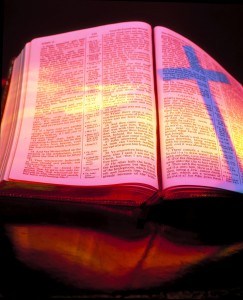 But, it is ever God’s way to lift up the humble. He does not speak through the powerful. He does not speak through the authorized. Rather, it is Moses, a fugitive. It is Elijiah the Tishbite (who? from where?). It is a John the Baptist, a voice in the wilderness. And, the greatest example of them all is: Jesus of Nazareth (“Josh” from Nowhere). This is God’s way. The apostle Paul writes in 1 Corinthians 1:19-25: “For it is written, ‘I will destroy the wisdom of the wise, and the discernment of the discerning I will thwart.’ Where is the one who is wise? Where is the scribe? Where is the debater of this age? Has not God made foolish the wisdom of the world? For since, in the wisdom of God, the world did not know God through wisdom, God decided, through the foolishness of our proclamation, to save those who believe. For Jews demand signs and Greeks desire wisdom, but we proclaim Christ crucified, a stumbling block to Jews and foolishness to Gentiles, but to those who are the called, both Jews and Greeks, Christ the power of God and the wisdom of God. For God’s foolishness is wiser than human wisdom, and God’s weakness is stronger than human strength.” (NRSV).
But, it is ever God’s way to lift up the humble. He does not speak through the powerful. He does not speak through the authorized. Rather, it is Moses, a fugitive. It is Elijiah the Tishbite (who? from where?). It is a John the Baptist, a voice in the wilderness. And, the greatest example of them all is: Jesus of Nazareth (“Josh” from Nowhere). This is God’s way. The apostle Paul writes in 1 Corinthians 1:19-25: “For it is written, ‘I will destroy the wisdom of the wise, and the discernment of the discerning I will thwart.’ Where is the one who is wise? Where is the scribe? Where is the debater of this age? Has not God made foolish the wisdom of the world? For since, in the wisdom of God, the world did not know God through wisdom, God decided, through the foolishness of our proclamation, to save those who believe. For Jews demand signs and Greeks desire wisdom, but we proclaim Christ crucified, a stumbling block to Jews and foolishness to Gentiles, but to those who are the called, both Jews and Greeks, Christ the power of God and the wisdom of God. For God’s foolishness is wiser than human wisdom, and God’s weakness is stronger than human strength.” (NRSV).
Jesus also stood outside the chain of command in His day. He had no external authority and yet, His word had authority. We read in Luke 4:31, 32: “Then [Jesus] went down to Capernaum, a town in Galilee, and on the Sabbath began to teach the people. They were amazed at his teaching, because his message had authority.” (NRSV).
Amos’ word had authority, and the religious functionaries of the day were right to fear it. He spoke the truth. He spoke for God. He re-affirmed ancient moral insights known to the nation. His words had a power and a credibility to them. They had an inner authority. They rang true.
And, Amaziah was right — in a way — to try to silence this man. Amos’ word showed him up for the religious fraud that he was.
And, Amos speaks a word of judgement on Amaziah and on the nation. For, the truth of the matter is that Amaziah will suffer the fate of those who hitch their fortunes to the rich and powerful and influential. He will fall when they fall. And, his family will fall with him. And the nation will go into captivity.
Jeroboam II was the last great and powerful monarch in the northern kingdom. His death ushered in a period of time where there were frequent assassinations and violent changes in leadership. Those in favor would quickly fall out of favor — until finally the nation itself would fall to the Assyrians.
But, Amos saw that the seeds of its destruction had already been planted in the days of apparent prosperity. It could not stand.

